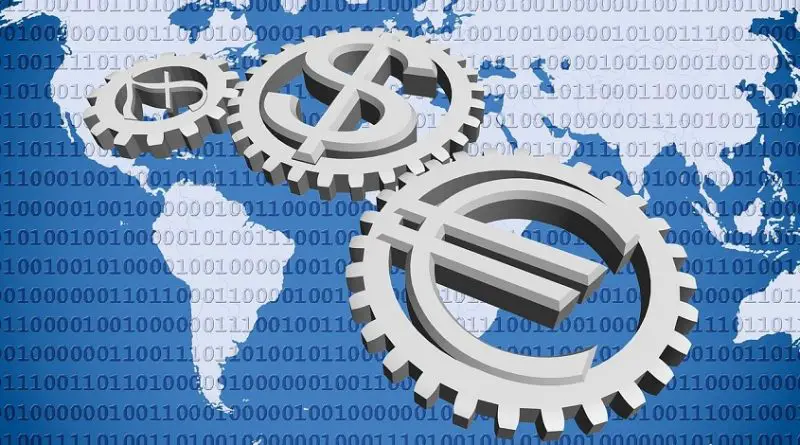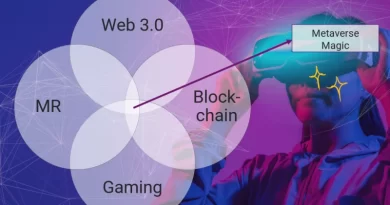The Metaverse’s Potential Economic Impact on Industries and Global Markets
The metaverse has the potential to create new business opportunities and drive innovation in various industries and global markets, but it may also lead to changes in the way work is done, the skills that are in demand, and the distribution of wealth, as well as raise ethical and policy considerations.
Introduction
Definition of the metaverse: The metaverse is a term that refers to a virtual reality-based shared space where users can interact with each other and digital objects in real-time. It encompasses a wide range of applications, including online gaming, social networking, and virtual commerce.
Current state of development and adoption of the metaverse: The metaverse is still largely in the early stages of development and adoption, with major tech companies such as Facebook and Google investing in its development. However, some industries such as gaming, live streaming, and e-commerce have already begun to see the impact of the metaverse.
Impact on the Technology Industry
Virtual reality and augmented reality technology companies: The metaverse will require advanced virtual reality and augmented reality technologies, leading to increased demand for these technologies and a corresponding growth in companies that specialize in these areas.
Cloud computing and data storage providers: The metaverse will also require a significant amount of data storage and processing power, leading to an increase in demand for cloud computing services from companies.
Hardware manufacturers (e.g. VR headsets): The widespread adoption of the metaverse would create a surge in demand for VR headsets, controllers, and other equipment, driving the growth for VR hardware companies.
Impact on the Gaming Industry
Online gaming and esports: The metaverse will enable new forms of online gaming, leading to increased engagement and revenue for game developers and esports organizations. The metaverse can host many virtual events and gaming tournaments
Virtual economy and in-game purchases: The metaverse will also lead to the growth of virtual economies within games, where players can buy and sell virtual items and currency, this will be an additional revenue stream for game developers and publishers.
Development of new gaming experiences and genres: The metaverse will enable the development of new types of games and gaming experiences that were not previously possible, such as fully immersive VR games and massively multiplayer online games.
Impact on the Media Industry
Virtual events and live streaming: The metaverse will provide new opportunities for virtual events, concerts, and live streaming, leading to a shift in how media and entertainment content is consumed.
Virtual cinemas and movie theaters: The metaverse will enable the creation of virtual cinemas and movie theaters, where users can watch films together in a virtual space.
Virtual real estate and advertising: The metaverse will create new opportunities for virtual real estate development and advertising, with brands able to create virtual storefronts, product demonstrations, and other immersive marketing experiences.
Impact on the Retail Industry
Virtual storefronts and e-commerce: The metaverse will enable retailers to create virtual storefronts and marketplaces, allowing users to shop and purchase products in a virtual environment. This will also boost e-commerce and e-marketplaces.
Virtual product demonstrations and try-ons: Users will also be able to virtually try on products and see how they look before making a purchase, reducing the need for physical retail stores.
Virtual shopping and product customization: The metaverse will enable virtual shopping experiences and product customization that were not previously possible, creating new opportunities for retail businesses.
Impact on the Service Industry
Virtual education and training: The metaverse will provide new opportunities for virtual education and training, allowing students to attend classes and training sessions remotely in a virtual environment. This will enable a wider access to education and professional development, regardless of location, and also offers opportunities for cost savings for institutions and learners. Additionally, virtual classrooms can provide more interactive and engaging learning experiences, with the use of virtual environments, simulations, and collaborative tools.
Virtual therapy and mental health services: The metaverse will enable new forms of virtual therapy and mental health services, allowing patients to receive treatment in a virtual environment. This will provide more accessibility and convenience for patients, especially those who live in remote areas or have mobility issues. Virtual therapy can also provide more privacy and reduce the stigma associated with receiving therapy.
Virtual tourism and travel experiences: The metaverse will also open up new opportunities for virtual tourism and travel experiences, allowing users to visit and explore different parts of the world without leaving their homes. This can also be a cost-effective solution for those who want to visit places that are difficult to reach or expensive to visit in person.
Virtual Consultation and expert services: the metaverse can allow service providers to offer their services to a wider audience, it will enable customers to access to the services regardless of the physical location, they can have a virtual consultation, expert advice, and service delivery. This can save time, travel costs, and can make it more convenient to access the services.
Impact on the Labor Market
Job creation in the metaverse industry: The growth of the metaverse is expected to lead to the creation of new jobs in areas such as virtual reality and augmented reality technology, game development, and virtual event production. Additionally, the virtual economy within the metaverse will also create new job opportunities in areas such as virtual marketplaces and e-commerce.
Changes in the nature of work and employment: The metaverse may also lead to changes in the way work is done, with more remote and virtual work becoming more common. This can have both positive and negative effects, such as increased flexibility and productivity, but also potential issues such as lack of face-to-face interaction and isolation. Additionally, the metaverse may also change the skills that are in demand, as virtual reality, game development, and other related skills will become more valuable.
Income inequality and distribution of wealth: The metaverse could also have an impact on income inequality and the distribution of wealth, as virtual economies and virtual real estate may become major drivers of wealth creation. Additionally, as the metaverse becomes more prevalent, those with the necessary skills and resources to thrive in this new economy may see greater economic opportunities, while those without these skills may be left behind.
Impact on Global Markets
Investment opportunities and market volatility: The metaverse is a new and rapidly-evolving technology, and as such, it will create new opportunities for investment. However, it could also lead to market volatility as the technology and its applications continue to develop and mature. Investors will need to closely monitor the industry and identify potential opportunities, but also be prepared for potential market fluctuations as the technology develops.
Impact on global GDP and economic growth: The metaverse has the potential to significantly impact global GDP and economic growth as it creates new business opportunities and drives innovation across various industries. Additionally, the growth of virtual economies within the metaverse could also contribute to economic growth, but it would also be important to consider any potential negative impacts such as increased income inequality or job displacement.
Impact on global trade and commerce: The metaverse may also impact global trade and commerce, as virtual marketplaces and e-commerce within the metaverse could lead to new opportunities for businesses to sell goods and services to global audiences. In addition, the metaverse can also change the way businesses operate and compete, leading to shifts in global trade patterns.
Conclusion
Summary of findings: In this analysis, we have examined the potential economic impact of the metaverse on various industries and global markets. We have looked at the impact on the technology industry, the gaming industry, the media and entertainment industry, the retail industry, the service industry, the labor market, and global markets. We have found that the metaverse has the potential to create new business opportunities, drive innovation, and create new forms of economic activity. However, it may also lead to changes in the way work is done, the skills that are in demand, and the distribution of wealth, as well as raise ethical and policy considerations.
Potential future developments: The metaverse is still in the early stages of development and adoption, and it is difficult to predict exactly how it will evolve in the future. However, it is likely that the technology will continue to mature and become more widely adopted, leading to further changes in various industries and markets.
Ethical and policy considerations: As the metaverse becomes more prevalent, it will be important to consider the ethical and policy implications of this technology. Issues such as data privacy, security, and intellectual property will need to be addressed, and regulatory frameworks will need to be developed to ensure that the metaverse is used in a responsible and ethical manner. Additionally, the social and economic impacts of the metaverse, such as income inequality and job displacement, will also need to be carefully considered and addressed.




